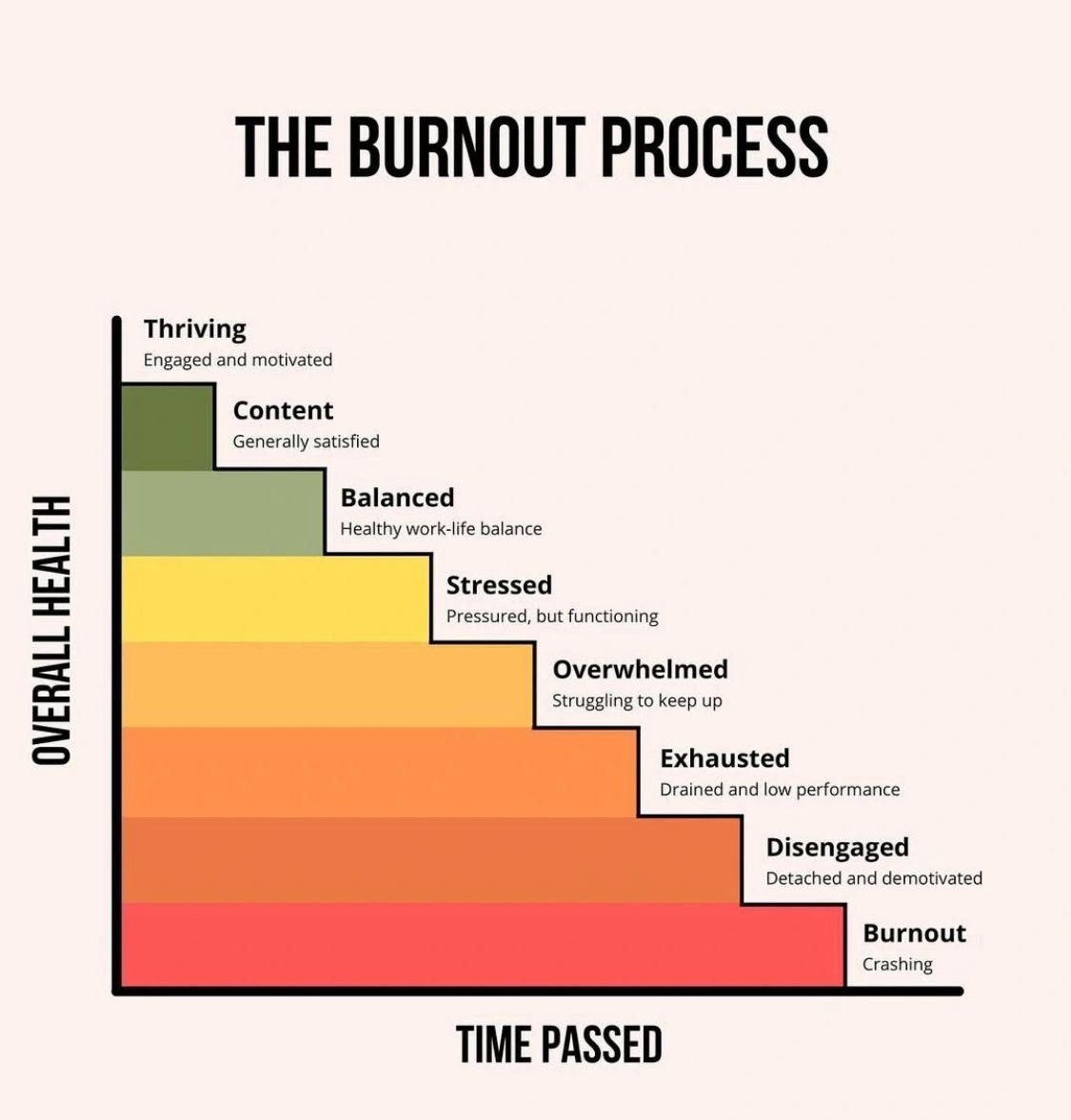
Burnout is often perceived as a sudden breakdown—an unexpected collapse of energy, motivation, and well-being. In reality, burnout is a gradual process, a slow erosion of mental, emotional, and physical reserves that often goes unnoticed until it becomes debilitating. Understanding the stages that lead to burnout is essential for recognizing early warning signs and taking proactive steps toward recovery and prevention.
The journey away from burnout typically begins in a positive state. At the thriving stage, individuals are fully engaged and motivated. They find joy and purpose in their work, demonstrate high performance, and are deeply connected to their goals. Their energy is high, and they often inspire others around them. This is the ideal state—where passion and productivity are in harmony.
As individuals transition slightly from thriving, they remain engaged and motivated, but the novelty or excitement may slightly wane. Nonetheless, they still feel challenged in positive ways and maintain strong satisfaction with their work. Productivity remains high, and stress levels are manageable.
At the content stage, individuals are generally satisfied with their roles. They may not feel highly inspired, but they are not distressed either. Work is predictable and routine, which provides comfort but can also breed complacency if not balanced with growth opportunities. This is often a plateau where the seeds of burnout can be sown if underlying stressors are ignored.
During these early stages, overall health is balanced. There is a healthy work-life integration—time for family, hobbies, and self-care. Individuals can rest adequately, and stress is manageable. However, if demands increase without corresponding support, this balance begins to tip.
Stress begins to creep in. Individuals may feel pressured but still function effectively. Small issues that once seemed insignificant now require more energy. Sleep might be slightly disrupted, and work starts to spill into personal time. At this point, it's easy to dismiss the signs as temporary or normal.
The overwhelmed stage marks a turning point. Responsibilities start to exceed coping capacity. Individuals struggle to keep up with tasks and may begin to miss deadlines or make errors. Anxiety rises, and a sense of helplessness may emerge. Health begins to suffer as stress becomes chronic and recovery time shrinks.
Exhaustion follows as the body and mind begin to show clear signs of depletion. Individuals feel drained despite rest. Productivity sharply declines, motivation dwindles, and physical symptoms such as headaches, insomnia, or fatigue become common. Interpersonal relationships may suffer, and a sense of detachment begins to develop.
Disengagement is a critical stage in the burnout continuum. Here, individuals become emotionally distant from their work and peers. Enthusiasm disappears, and cynicism often replaces it. They feel stuck, demotivated, and disconnected from their original purpose. The job becomes a burden rather than a calling.
Finally, burnout manifests as a full crash—emotionally, physically, and mentally. Individuals may be unable to work or function normally. This stage is characterized by a profound sense of failure, despair, and chronic exhaustion. Recovery at this point can take weeks, months, or even years and often requires professional intervention.
Burnout is not a sudden event; it is the culmination of many small moments of neglect—neglecting rest, boundaries, emotional needs, and health. Recognizing the subtle shifts from thriving to burnout is crucial. By understanding each stage—thriving, contentment, stress, overwhelm, exhaustion, and disengagement—we empower ourselves and others to take action early. Burnout is preventable, but only if we acknowledge its slow onset and respond with intentional care and balance.
Unlock Your Potential with Delight Therapy
hello@delighttherapy.com